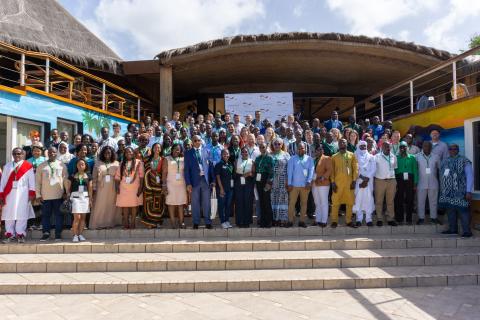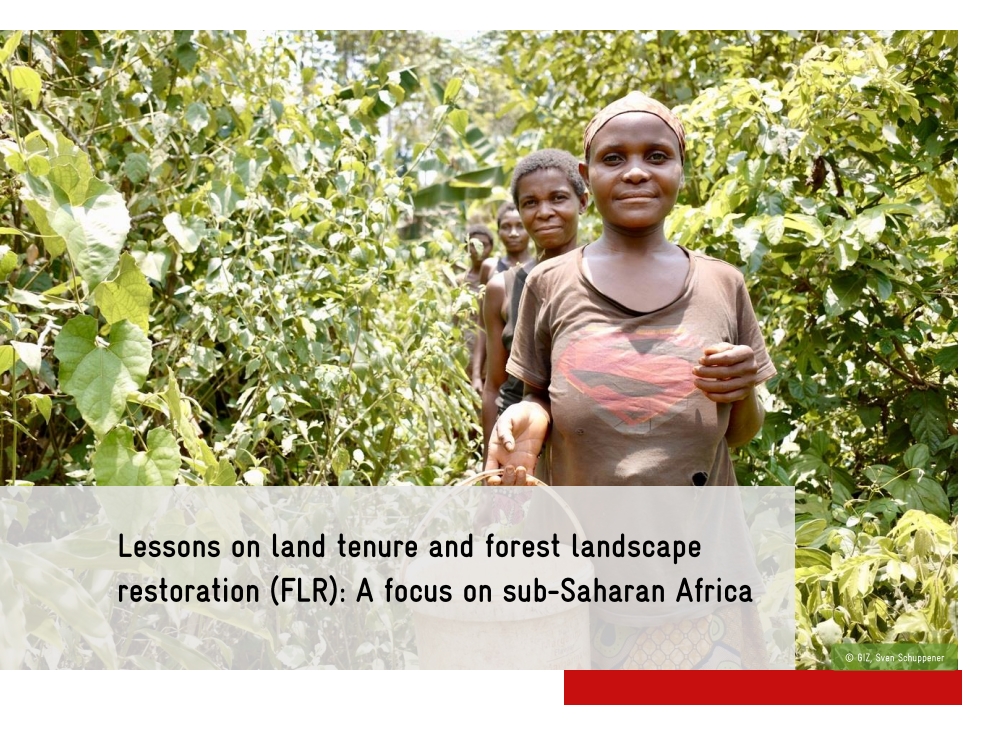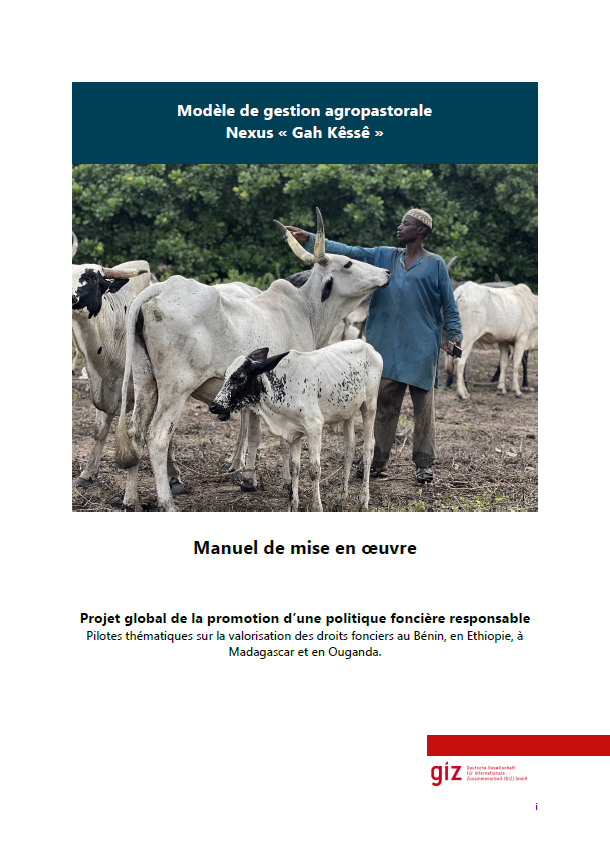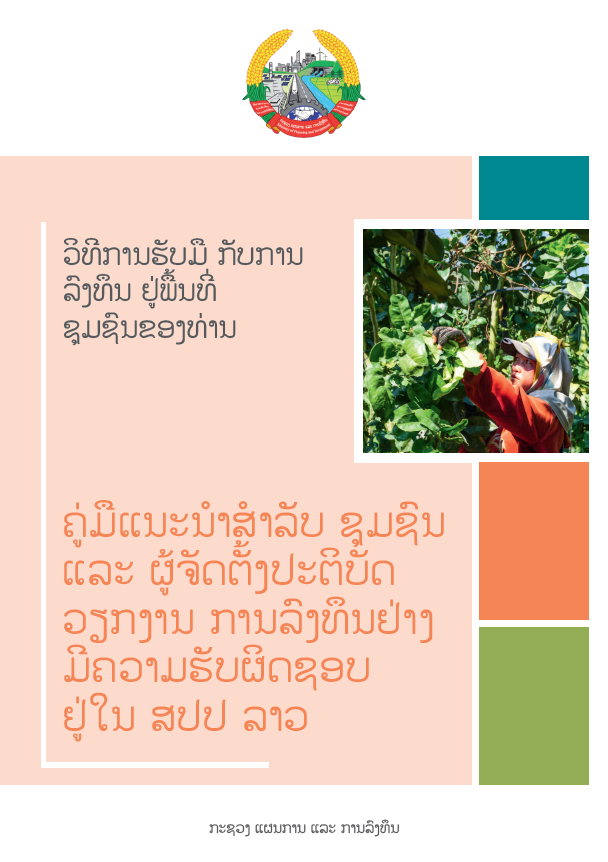
Topics and Regions
Details
Location
Contributions
Displaying 1 - 10 of 131GIZ Knowledge Exchange Workshop 2024 in Senegal Took a Deep Dive on Anchoring Practitioners’ Experience in Responsible Land Governance Systems
Oliver Puginier
As part of its efforts to promote secure land tenure in Africa, three Programmes of German Development Cooperation joined hands and brought together 120 land experts from 17 countries to discuss Responsible Land Governance Systems in Somone, Senegal on 7-11 October 2024. These were: the “Global Programme on Responsible Land Policy” (GPRLP), the “Global Programme Strengthening Advisory Capacities for Land Governance in Africa” (SLGA) and the bilateral project “Seen Suuf - Support for the improvement of land management”. This was the second such workshop after the Knowledge Exchange Workshop in June 2022 in Uganda, entitled "Secure Land Rights – Learning, Collaboration and Practice", and was intended to deepen exchanges as well as share lessons learned.
2ème GIZ Atelier d'Échange de Connaissances (KEW)
Les meilleures pratiques autour de cinq communautés de pratique thématiques ont été mises en évidence dans les flux de connaissances, y compris des thèmes transversaux tels que la résilience climatique, l'inclusion du genre et la numérisation. L'atelier comprenait des excursions sur le terrain, des présentations, des sessions d'échange et des discussions sur l'intégration des expériences des praticiens dans les cadres politiques, favorisant ainsi un réseau international solide pour le partage des connaissances et l'action collaborative.
2nd GIZ Knowledge Exchange Workshop (KEW)
Best practices around five thematic communities of practice were highlighted in Knowledge Streams, including cross-cutting themes such as climate resilience, gender inclusivity, and digitalization. The workshop included field excursions, presentations, exchange sessions, and discussions on mainstreaming practitioners' experiences into policy frameworks, thus fostering a strong international network for knowledge sharing and collaborative action.
The results are summarized in this communiqué in English.
Land rights matter: Impact of the project for Responsible Land Policy (ProPFR) in the Centre region of Cameroon
Tobias FELDT, Consoler TAPIMENE, Tabea RIEMENSPERGER
The project "Responsible Land Policy" (ProPFR) in Cameroon is being implemented since January 2023 and contributes to strengthening land use rights in the Centre Region of Cameroon (primarily in the municipalities of Nanga-Eboko and Yoko), safeguarding the livelihoods of the rural population and simultaneously promoting the protection and restoration of forest-rich landscapes. This article provides an overview of the progress of the project and its impact.
Leçons sur le régime foncier et la restauration des paysages forestiers (RPF): Regard sur l’Afrique subsaharienne
Si nous voulons comprendre et adresser une restauration des terres et des forêts qui soit durable sur deux plans, social et écologique, il est essentiel de comprendre de manière compréhensive le régime foncier ainsi que forestier. Les forêts sont capitales pour la santé de la planète et la menace grandissante du changement climatique, de la perte de biodiversité et de famine exige une action urgente à tous les niveaux.
Lessons on land tenure and forest landscape restoration (FLR): A focus on sub-Saharan Africa
It is important to understand and address land and forest tenure – comprehensively – if we are to work towards land and forest restoration that is both socially and ecologically sustainable. Forests are critical to planetary health, and the increasing threats of climate change, biodiversity loss and hunger call for urgent action at all levels.
Promotion de la Politique Foncière Rurale (ProPFR) au Niger
Le ProPFR vise l’amélioration de la protection juridique de l’accès à la terre, compte oeuvrer pour apporter un appui et un accompagnement aux structures étatiques, des structures déconcentrées du code rural, à la société civile et aux leaders d’opinion pour faire de la gouvernance foncière, le levier pour le développement des activités économiques rurales.
Modèle de gestion agropastorale à Benin Nexus « Gah Kêssê »
Le modèle Nexus « Gah Kêssê » est une approche holistique visant à soutenir les systèmes agropastoraux localement et compensant les pertes liées à la réduction de la mobilité. Le modèle a été conçu, testé et analysé par la Deutsche Gesellschaft für Internationale Zusammenarbeit (GIZ) GmbH pour le compte du Ministère Fédéral de la Coopération Economique et du Développement (BMZ) au sein du Projet global de la promotion d’une politique foncière responsable (ProPFR) et du module pays Bénin.
Modèle de gestion agropastorale Nexus « Gah Kêssê »
Le modèle Nexus « Gah Kêssê » est une approche holistique visant à améliorer localement les conditions de vie des populations agropastorales. Le modèle a été conçu, testé et analysé par la Deutsche Gesellschaft für Internationale Zusammenarbeit (GIZ) GmbH pour le compte du Ministère Fédéral de la Coopération Economique et du Développement (BMZ) au sein du Projet global de la promotion d’une politique foncière responsable (ProPFR) et du module pays Bénin.
ວິທີການຮັບມື ກັບການ ລົງທຶນ ຢູ່ພື້ນທີ່ ຊຸມຊົນຂອງທ່ານ
ແຜ່ນພັບນີ້ຖືກອອກແບບມາເພື່ອຊ່ວຍໃຫ້ຊຸມຊົນທ້ອງຖິ່ນທີ່ອາດຈະໄດ້ຮັບຜົນກະທົບຈາກການລົງທຶນທີ່ດິນເພື່ອກະກຽມ, ຮູ້ວ່າຈະຄາດຫວັງຫຍັງ, ເຈລະຈາແລະມີສ່ວນຮ່ວມກັບການສະເຫນີການລົງທຶນໃນຊຸມຊົນຂອງພວກເຂົາ.








